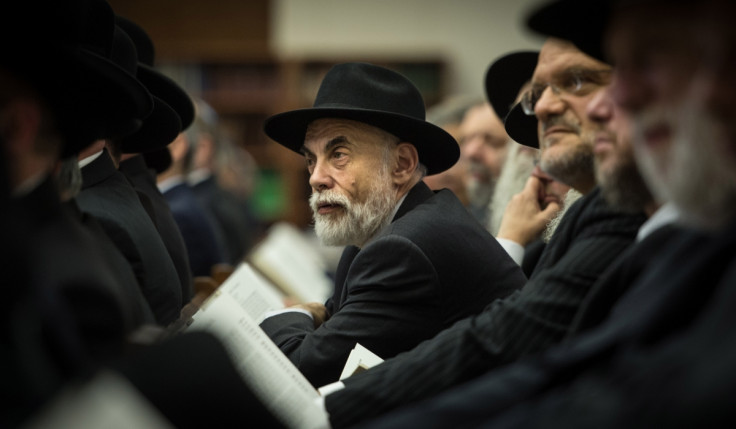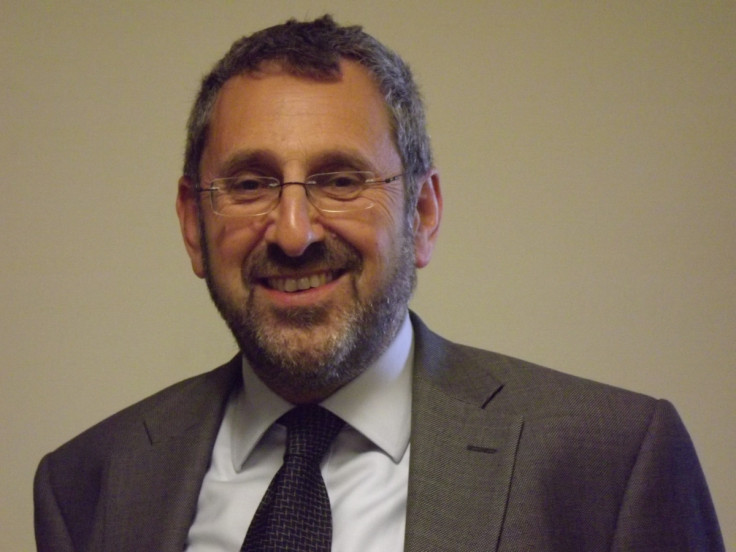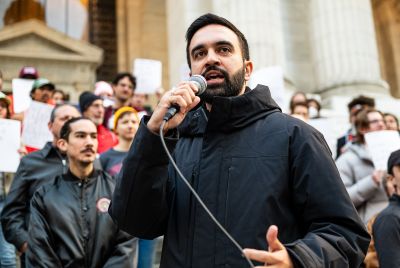Sharia law UK: Britain's Jewish Beth Din court 'an example' for Muslim legal system

On the second floor of a dull office block in Finchley, north London, David Frei has some advice for Sharia courts as they face renewed criticism and scrutiny in 2016. As chief registrar of London's Beth Din, Frei knows a thing or two about running a religious court in an increasingly secular Britain.
A Jewish court has operated in some form or another in Britain since Oliver Cromwell allowed Jews to return four centuries after their expulsion by King Edward I in 1290. Like Sharia, Talmudic jurisprudence has its own practices for marriage, divorce and other aspects of communal life – but unlike Sharia, the Beth Din operates with relatively little criticism from the British authorities.
"Clearly one has to professionalise matters. One has to have protocols. Remember, we are so many centuries ahead of them in terms of being in this country and we're under the spotlight. We have a very critical Jewish press which will be on our backs if we do anything outrageous," Frei, a London-born barrister who has been registrar at Beth Din since 1999, told IBTimes UK.
Inside Britain's Sharia courts, an IBTimes UK investigation

In a series of exclusive interviews and features this week, IBTimes UK investigates the scope and role of Islamic Sharia courts in Britain.
Speaking to Islamic scholars in London and the Midlands, pro-and anti-Sharia activists, politicians and British Muslims, this series explores the true role of Sharia councils and courts in Britain.
"We also have our stakeholders, responsible people. We have done religious divorces here for some pretty important people – literally captains of industry, household names. When you have people like that coming through your door, you just cannot be a back-street outfit above a chip shop in Lambeth."
Much of the criticism of Sharia has been just that: while the Leyton-based Islamic Sharia Centre and the Muslim Arbitration Tribunal (MAT) are well-established, transparent outfits with, in ISC's case, many Sharia courts are not. Muslims scholars have complained about dozens of smaller Sharia councils operating well below the radar.
But Frei also sees evidence of Islamophobia in the criticism of Sharia. He said: "There is a demonisation of the community. You just have to mention the word Sharia and the first thing people think of is hands being cut off. It is rubbish: it might be a criminal aspect of Sharia law but it is not Sharia in general. It has become a bogey word for the British public – you just mention Sharia and you get a headline."
Unlike Sharia, Jewish marriages in Britain also include a civil ceremony (a signing of the register) – meaning British Jews only need to have one service. Muslim marriages, on the other hand, are totally separate from civil ceremonies. As many as 30% of British Muslims only have a religious marriage and therefore have to rely exclusively on Sharia courts when seeking divorce.
They need to smarten up their act, but it is not just the Sharia system, the whole Muslim community needs organising. They haven't got unity amongst themselves
Like Sharia, Talmudic law has faced criticism for inequality towards the sexes. When a Jewish couple want to get divorced, a woman has to obtain a "get" from her husband. If he refuses, the divorce cannot go ahead and there is no way for the Beth Din to compel him to do so. This has resulted in the phenomenon of "chained women", unable to remarry without consent from their estranged partner.
Beth Din have tried to resolve the issue through everything from naming and shaming uncooperative spouses to pushing for government legislation, passed in 2002, that allows women to go to the High Court and petition for their husbands to be denied a decree absolute – a British court's final order that ends a civil marriage – until they have provided a get. But even this hasn't solved the problem.
Frei is unapologetic about the issue that this creates for some Jewish women, arguing that when Jews have a religious marriage, they are accepting the rules – unequal or not. If they are not happy with the system, they can go to other less conservative branches of the Beth Din run by the Reformed or Liberal Jewish movements. Or they can have a civil ceremony – and the same goes for divorce.

"People observe certain rules. If you want to be a member of a certain club, you accept that club's rules. If you don't, if you think the uniform at the golf club is daft, don't join it. We say the same with regard to religion. Nobody is compelled to keep our laws," he said.
Critics have argued recently that the government should pass legislation to prevent Sharia law from discriminating against women and while Frei is not best placed to discuss the specifics of Islamic law, he would resist any attempt by the state to do the same to the activities of Beth Din.
"I am not sure it is the role of the state to start interfering and say you must live in accordance with a particular lifestyle and I think the state recognised that with the recent introduction of same sex marriage. It made it a criminal offence for the Church of England to conduct such marriages and it recognised that for certain people such marriages are fundamentally wrong," he said.
On how that would apply to the practice of polygamy, allowed under Muslim law (and once under Jewish law, although it was banned some 1,000 years ago by Ashkenazi Jews), Frei is not best placed to comment. "I'm not going to start commenting on polygamy but if the state is allowing same sex marriage then perhaps polygamy might be considered," he said, with a hint of sarcasm.
"I think the state has got to be very careful when it starts intervening in matters of individual religious conscience. Nobody is compelled to observe our religion. If a woman cannot get a get from her husband – and many, many women can't – they can go off and marry whoever they want [at] Reform, or Liberal, [or a] registry office," he said.
"So now you're saying: 'No that's not good enough, the state should say they are allowed to marry in an Orthodox synagogue' – even though Jewish law doesn't allow them to do so?"
It is a fact that the Jewish community does not receive the same kind of scrutiny over the role of Beth Din operating as "parallel" legal system as Sharia councils. Despite this, Frei is still critical about what he sees as a growing movement against religious freedom in Britain. For Jews, it has come as criticism over the practice of circumcision or, like the Muslim community, ritual slaughter.
"I think there are genuine fears at the moment in any number of areas – circumcision, ritual slaughter – that the state may one day take a more interventionist role and it is very disturbing. At one point or another, Jews will have to evaluate their future in the country if this was to happen," he said.
The vast majority of Muslims are law abiding citizens of this country, many of them are not particularly orthodox and they have integrated very nicely
"It is not just Muslims, even the churches feel that the very secular wave that is washing over this country at the moment. There is a mood which is reactive and irrational. The issues of religious extremism coming out of Sharia and terrorist outrages throughout Europe are certainly having an effect on government and public opinion and they are looking to clamp down on things."
In their opposition to this, Jews, Muslims and Christians are united in purpose, Frei said, if not in action. Although he was recently asked to speak at an event on religious law alongside Muslim lawyers, voices from the Sharia community are yet to contact Beth Din for advice. If they were, Frei said he would be happy to give it. But what would he say?
"They need to smarten up their act, but it is not just the Sharia system, the whole Muslim community needs organising. They haven't got unity among themselves. We tend to see them as one mass of people – 'the Muslims' – but they're not, there are millions of them. Some have only come in the last six weeks [and] others have been here a century," he said.
"And that is the trouble. The vast majority of Muslims are law-abiding citizens of this country; many of them are not particularly orthodox and they have integrated very nicely. It is where you have large swathes of people who are not educated and stuck in some northern towns where they are not being allowed to integrate and they have taken over large ghettos. That is where you have your problem."
On 29 January, IBTimes UK speaks to women who have been through the Sharia court system and the charities that have helped them.
© Copyright IBTimes 2025. All rights reserved.






















